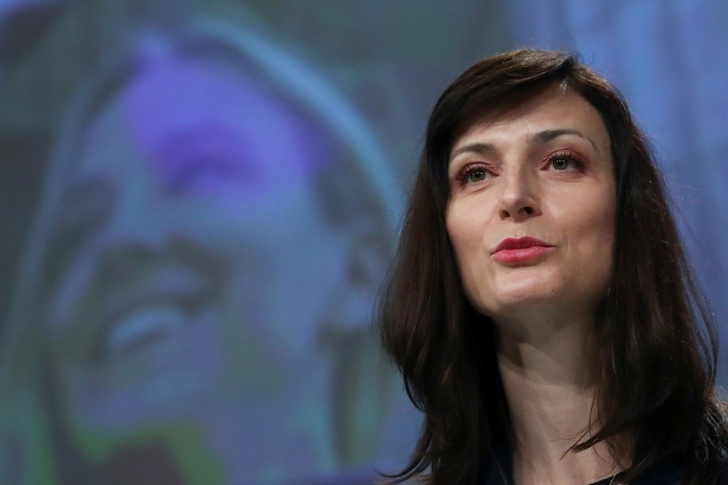After five elections in two years, Bulgarian parties on Monday agreed to form a power sharing government with rotating prime ministers to implement badly needed reforms in the graft-ridden EU nation.
Former EU commissioner for innovation Mariya Gabriel, tasked by the conservative GERB party to lead negotiations, announced the agreement with the anti-graft We Continue the Change (PP).
"We all made a lot of concessions," Gabriel told a news conference in the capital Sofia.
The 44-year-old ex-commissioner, who resigned from her post in Brussels last week, will initially be deputy prime minister, under the leadership of 60-year-old researcher Nikolay Denkov of the PP-DB coalition.
Denkov and Gabriel will rotate as prime ministers for a period of nine months each.
"We sought a solution to avoid the real danger of new elections," Denkov said Monday.
- Cautious analysts -
Analysts cautiously welcomed Monday's announcement, with polling institute Trend's Evelina Slavkova calling it a "step in the right direction... towards a government of salvation, almost."
The European Union's poorest country has been plagued by political instability and led by caretaker governments in the past two years.
A fifth vote in early April did not provide clear majorities either.
GERB won 69 MP seats in the 240-seat legislature and has remained badly isolated, with their main rivals PP-DB getting 64 MP seats.
Four smaller parties also secured seats.
Bulgaria has never had a rotating premiership but the compromise remained the only option for a cabinet after Gabriel failed to secure backing from two out of three smaller parties for a cabinet of GERB led by herself as prime minister.
Denkov, who will take over the premiership for the initial nine months will present the full cabinet list to President Rumen Radev in the coming weeks before seeking parliament approval.
The government's priorities include the urgent passing of a 2023 budget, making progress on accession to eurozone and the visa-free Schengen area.
- Addressing corruption -
Gabriel has backed the efforts by PP-DB to oust chief prosecutor Ivan Geshev and pass constitutional reforms to improve accountability and establish a control mechanism that the EU recommended.
Rampant corruption made thousands of Bulgarians take to the streets in the summer of 2020, finally forcing out GERB after a decade in power under three-time premier Boyko Borisov.
The controversial yet all-powerful Geshev, in office since 2019, was also targeted by protesters who accused him of shielding Borisov from justice.
Geshev refused to resign last week, theatrically tearing to pieces his written resignation in front of journalists and threatening his political opponents, including his former close ally Borisov, with revelations.
Geshev on Monday insisted that he was facing "a coordinated political attack", as prosecutors said they are looking into leads incriminating Borisov and Gabriel.
"The prosecutor's response has paradoxically contributed to the achievement of a political compromise", which has become urgent in view of "the extremely difficult situation in the country", Gallup International analyst Parvan Simeonov told AFP.
Weakened by the turmoil, Bulgaria was forced to abandon its bid to join the eurozone in 2024 and was unable to accede to the Schengen free movement zone.
The Eastern European country has also been prevented from tapping into the EU resilience and recovery fund.
rb-vs-anb/ds/kym/ach
© Agence France-Presse
Your content is great. However, if any of the content contained herein violates any rights of yours, including those of copyright, please contact us immediately by e-mail at media[@]kissrpr.com.
Source: Story.KISSPR.com

